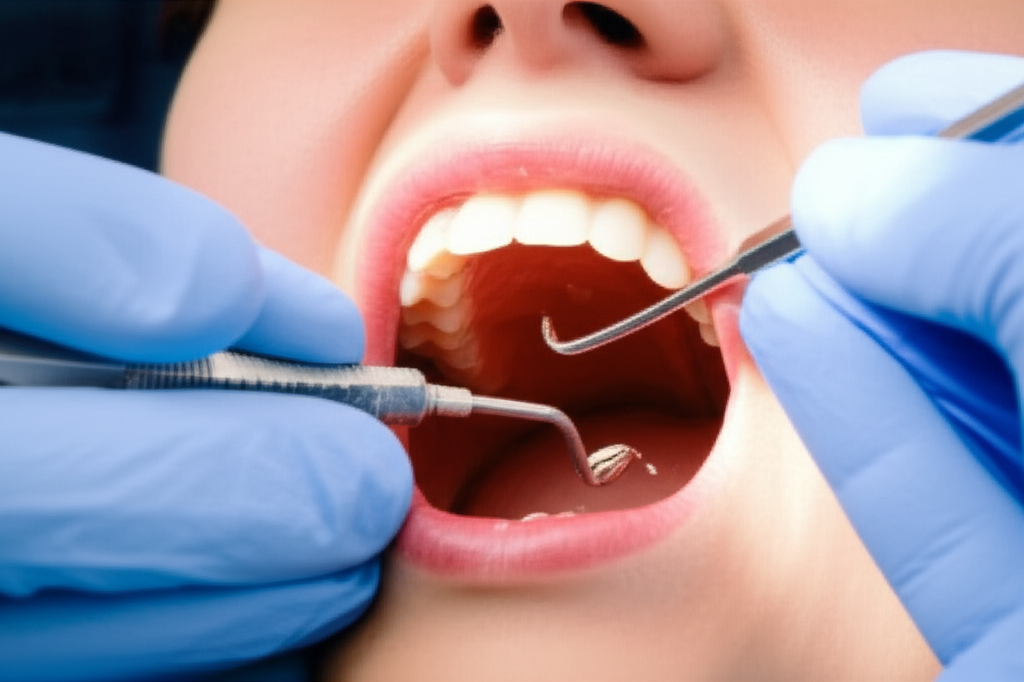
Can a Dentist Do a Root Canal Same Day? Your Guide to Fast Relief and Smart Choices
Ever wake up with that throbbing, deep pain inside your tooth? The kind that won’t let you think of anything else? Maybe you’ve Googled in a hurry—“Can a dentist do a root canal same day?” Don’t worry, you’re not the only one. Toothaches always seem to come at the worst time, and quick answers really matter.
Here’s some good news. Dentistry these days has a lot of options for people feeling like you do. If you’re scared, confused, or just desperate for the pain to stop, take a breath. The advice below is plain, honest, and won’t try to scare or sell you anything. You’ll see what to expect if you need a fast root canal, who can help you, and how to make smart choices.
In This Article
What We’ll Talk About:
- The Short Answer: Can Dentists Really Do Same-Day Root Canals?
- What Decides If You’re Eligible for Immediate Treatment?
- The Step-by-Step Same-Day Root Canal Process
- When Quick Treatment Isn’t Possible—And Why
- Should You See a General Dentist or a Root Canal Specialist?
- The Upsides (and a Few Drawbacks) of Single-Visit Root Canals
- What To Do If You Need Urgent Help Right Now
- Frequently Asked Questions About Emergency Root Canal Treatment
- Key Takeaways: Your Empowering Next Steps
The Short Answer: Can Dentists Really Do Same-Day Root Canals?
Let’s get right to it. Yes—a lot of dentists can do a root canal the same day, depending on your case. With newer dental tools and better ways to do things, getting a root canal fast is much more common now.
It’s a bit like fixing stuff at home. Sometimes you can patch things up in an afternoon; other times, you need more tools, help, or a pro to handle it. Teeth work the same way.
Why Does It “Depend”?
Every mouth is different. Simple fixes—like a front tooth that just started hurting—might get done in one visit. Harder stuff might need a few appointments or a dentist with special training.
So yes, sometimes your dentist will say “it depends.” But don’t worry: if fixing your pain fast is an option, most dentists will try to make it happen.
What Decides If You’re Eligible for Immediate Treatment?
So how do you know if you can get a root canal on the spot? It usually depends on three big things: what’s wrong with your tooth, what tools your dentist has, and your health. Let’s look closer.
1. Your Tooth Problem (Diagnosis & How Tricky It Is)
- How Bad the Infection Is: Did the pain just start? Is it mild to medium? You might be able to get it fixed quick. If your tooth is really swollen or oozing pus, you might need antibiotics first.
- Which Tooth It Is: Front teeth are like small apartments—easy to work in. Bigger molars are like old, twisty houses—more time and effort needed.
- How Simple or Complicated the Tooth Roots Are: Straight roots are easier and faster to clean; twisted or blocked ones take longer.
- Old Dental Work: If you already had something done to this tooth, your dentist might need more time.
2. What Your Dentist Has Available
- Emergency Openings: Some clinics save spots just for people with dental emergencies.
- Modern Dental Tools: Cool stuff like dental microscopes, efficient little drills, or 3D X-rays help get root canals done faster and safer. Good labs, like a top dental ceramics lab, can also make real crowns quickly.
- Helpful Staff: Doing a quick root canal takes a helpful team—assistants, hygienists, and sometimes lab workers.
3. Your Health
- Other Health Issues: Serious health stuff (like super high blood sugar or a weak heart) can make longer treatments risky, or mean more time is needed.
- How You Feel at the Dentist: Root canals take a while. If you get very nervous, or your jaw hurts from staying open, your dentist may break it up into shorter, easier visits.
The Step-by-Step Same-Day Root Canal Process
Thinking about what goes on in a root canal? Here’s a peek at a normal single-visit procedure, so you know what you’ll face—no tricks or surprises.
1. Careful Check-Up
You’ll start with your dentist checking your whole mouth, taking X-rays, and maybe tapping the tooth or using cold spray to figure out the problem tooth exactly.
2. Getting Your Tooth Numb
You’ll get a numbing shot so the tooth and the area around it don’t hurt. Most people think it feels similar to a normal filling, but you’ll stay numb longer.
3. Keeping The Tooth Dry
A little rubber sheet (called a “rubber dam”) covers your tooth to keep spit and germs out. It helps the dentist work more cleanly.
4. Opening, Cleaning, and Disinfecting
- The dentist makes a small hole in the top of your tooth.
- Bad pulp (that’s the soft stuff and nerves inside) gets carefully removed.
- The tiny tooth canals are cleaned out, shaped, and washed really well.
5. Filling and Sealing the Tooth
- Once cleaned, the empty spaces are filled with a soft, bendy material and sealed up to keep new germs out.
- A temporary filling covers the hole. It’s a basic repair until the final crown.
6. What About the Real Crown?
Most same-day root canals end with a sturdy temporary cover. You’ll usually come back in a week or two for a special crown made just for you. Some offices work with digital dental labs to speed things up, but usually the crown is done at a separate visit.
7. Aftercare Instructions
You’ll get clear instructions—what to eat, what to avoid, and how to handle any soreness. Most people feel back to normal the same day!
Fun Fact:
Most people feel big relief within 24-48 hours after the procedure. The difference compared to the pain before can feel amazing.
When Quick Treatment Isn’t Possible—And Why
Of course, sometimes there are reasons why a same-day root canal can’t happen right away.
Main Problems
- Big Swelling or Abscess: If your face is puffy, or the pain is so strong you can barely stand it, your dentist might need to give you medicine to calm things down first.
- Really Curvy or Blocked Roots: If the tooth roots twist or have an old filling blocking the way, you might need more appointments or see a specialist.
- Serious Health Problems: Some health conditions or medications make slow, careful dental work safer.
- Dentist is Booked Up: Sometimes, offices just don’t have the time or tools free right that moment.
Takeaway
If your dentist says, “Let’s do it in two visits,” try not to worry. They just want you to get the best and safest care.
Should You See a General Dentist or a Root Canal Specialist (Endodontist)?
If you’re hurting, who do you call first? Should you ask your regular dentist or search for a root canal specialist (called an endodontist)?
General Dentist: The All-Around Doctor
- Most simple root canals, especially on front teeth, can be done by your regular dentist.
- Many dentists with good tech will fit you in the same day if your case is simple.
- It’s usually easier to get to and can cost less.
Endodontist: The Root Canal Pro
- Endodontists do root canals all day, every day—they’re the experts.
- They have super-advanced equipment for tricky teeth: strong microscopes, 3D scans, and tools for hard-to-reach places.
- If your case is complicated—like a tooth that’s had work before, or roots that are blocked—they’re your best chance for saving the tooth.
When Your Dentist Sends You to a Specialist
If your dentist tells you to go see an endodontist, it means they want the best for you, not that something’s wrong. Think of it like getting a second opinion from someone who only handles the hardest cases.
The Upsides (and Downsides) of Single-Visit Root Canals
Let’s be honest about the good and bad.
Good Things About Same-Day Root Canals
- Fast pain relief. The biggest perk—pain can stop fast.
- Fewer trips to the dentist. You don’t have to take time off work or find rides as often.
- Lower chance for new infection. Less time for germs to sneak in.
- Get it over with. For people who hate the dentist, facing it once is way better than twice!
Not-So-Great Things
- Not for everyone. Bad swelling or weird roots might mean you need more visits.
- Longer appointment. Be ready to be in the chair 1-2 hours, or even longer for big teeth.
- Still need the final crown. Your pain gets fixed, but you’ll need to come back to get your tooth fully fixed.
What Studies Say
Research (like reviews in the Journal of Endodontics and the Cochrane Database) finds that single-visit and multi-visit root canals have almost the same success rates—usually between 85-95%. For most easy cases, same-day works just fine.
What To Do If You Need Urgent Help Right Now
If you’re reading this because you need help NOW, here’s your action plan.
1. Call a Dentist, Now
- Find offices with emergency appointments.
- Tell them exactly how your tooth feels—how much it hurts, if there’s swelling, etc.
- Don’t wait. Dental infections can get worse fast.
2. Ask About Same-Day Appointments
- Ask straight out: “Can I get a root canal today for my tooth?”
- Let them know if you’ve got work, travel, or family stuff coming up.
3. Listen to Pre-Appointment Advice
If they say to take painkillers or start antibiotics, do what they say. Only take or stop medicines if your dentist or doctor says so.
4. Don’t Ignore Bad Symptoms
If you get:
- Swelling in your face, neck, or near your eye
- Trouble breathing or swallowing
- Fever with really bad tooth pain
…go to the ER right away. These might be signs your infection is serious.
Frequently Asked Questions About Emergency Root Canal Treatment
Is a Same-Day Root Canal Safe?
Yes, most healthy people with simple problems can get one safely. The results match multi-visit root canals when done right.
How Long Does a Single-Visit Root Canal Take?
- Front teeth: 30-60 minutes.
- Premolars: 1-1.5 hours.
- Molars: 1.5-2 hours or more.
If your tooth’s really damaged or has had work before, it can take even longer.
Do I Get My Final Crown the Same Day?
Usually not. You leave with a strong temporary filling for now. The final cap is made at a follow-up. The work is done by a professional lab like a crown and bridge lab.
What Are Signs I Might Need a Root Canal?
- Bad or long-lasting tooth pain (especially with hot or cold foods)
- Swelling or a little bump on your gums
- Hurting when you bite or chew
- The tooth is getting darker
- Gums look puffy or sore
What If My Dentist Says a Same-Day Root Canal Isn’t Possible?
Trust their call—they know what’s best for you. Sometimes waiting or splitting it up leads to a better result. In the meantime, ask how to handle the pain and stick to their advice.
How Much Does a Same-Day Root Canal Cost?
Prices change depending on which tooth, how tricky it is, your area, and your insurance. Normally, emergency root canals cost about as much as regular ones. Ask your dentist’s office for a price. See if your insurance pays for emergency dental work, or if there are payment plans.
Who’s a Good Candidate for Same-Day Root Canal?
You Can Probably Get One If:
- You have medium or bad tooth pain, but not a swollen face.
- The tooth is easy to fix (straightforward root, front tooth, or simple molar).
- You’re generally healthy.
- You can handle a longer dentist visit.
- You want to get it over with quick and get back to your life.
Who Probably Can’t Get One?
- Big facial swelling, fever, chills, or pain that spreads.
- Hard-to-reach or blocked teeth.
- Can’t handle being at the dentist for over an hour, or certain health problems.
Not sure? Just ask. Most dentists will be honest and tell you right away.
Key Takeaways: Your Empowering Next Steps
Let’s sum it up if you think you might need a root canal, fast:
- Same-day root canals are possible—ask your dentist about your case.
- Quick treatment brings fast relief and is usually safe.
- Not everyone can get treated right away, and that’s okay. Your safety matters most.
- You still need to come back for the final crown.
- Be honest. Tell your dentist about your pain, schedule, and any health worries.
- Don’t wait for care. The faster you call, the better chance you save your tooth and stop things from getting worse.
You get to make the call. Every step—calling for help, telling your story, following through—moves you closer to comfort and a healthy mouth.
For the Curious: How Modern Dental Labs Speed Up Care
New dental labs aren’t just behind the scenes—they’re part of how single-visit root canals happen. For example, a good china dental lab can make crowns and bridges fast and fit them perfectly using computers and 3D scans. If you need a denture, they help dentists make removable teeth that fit quickly, too. Working together, your dentist and the lab mean less wait time and quicker smiles for you.
Your Teeth, Your Choice—With a Little Expert Help
Root canals sound scary, but they’re much better than they used to be. The best thing? You don’t have to suffer with bad tooth pain by yourself. When something feels off, make the call—find a caring dentist who listens. Every question matters. Every tooth deserves a shot.
If you’re not sure, reach out. Relief could be just one appointment away.
Sources Cited:
- American Association of Endodontists
- Journal of Endodontics
- Cochrane Database of Systematic Reviews
- Standard dental educational sources
If you’re looking for a good dentist, ask for referrals or check out modern practices near you. Taking care of your teeth now means fewer worries later!
Want to learn more about dental work, labs, or new materials? See trusted resources about dental ceramics lab and digital dental lab for how they help urgent care. Your health and comfort come first—always.








